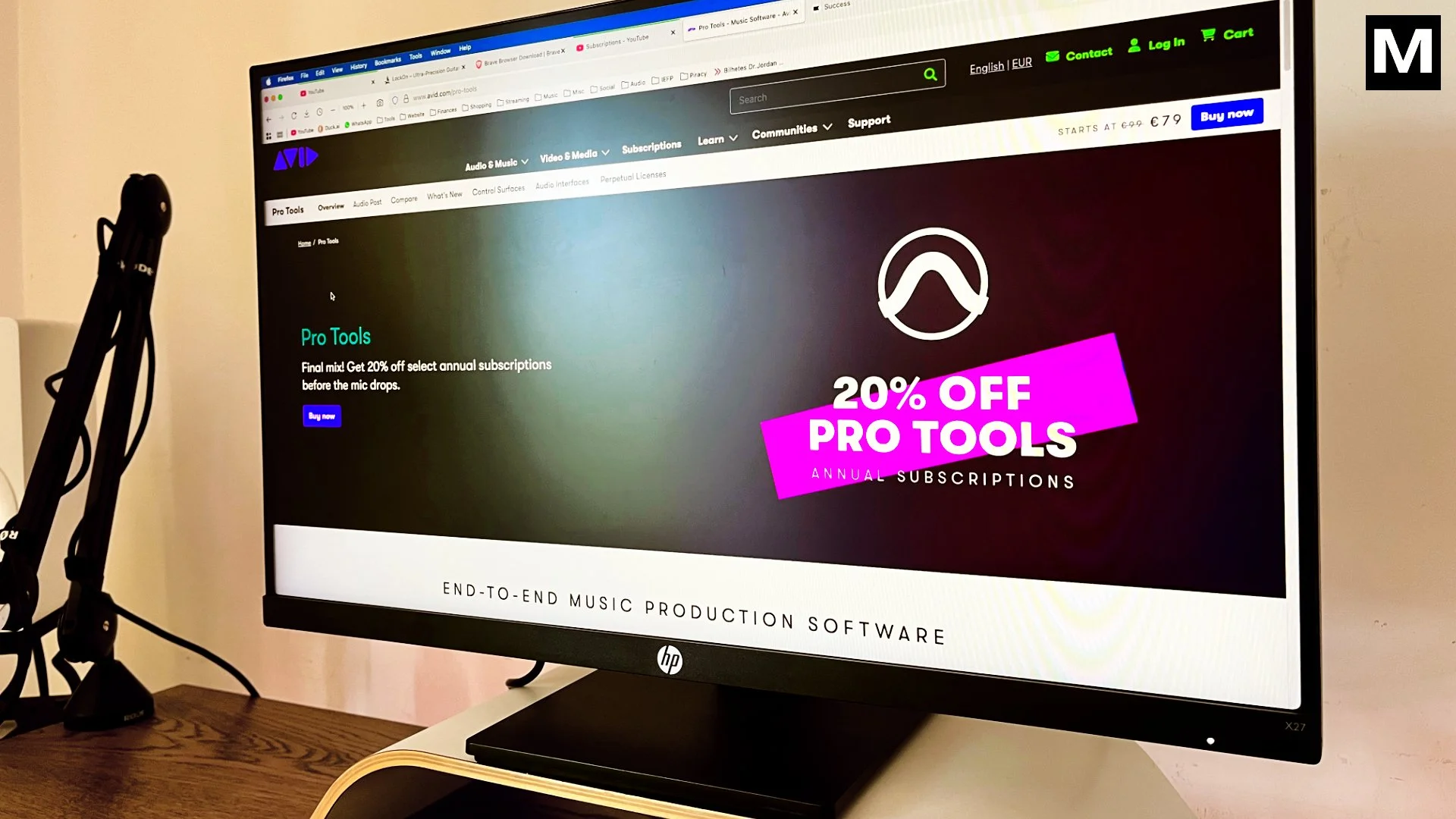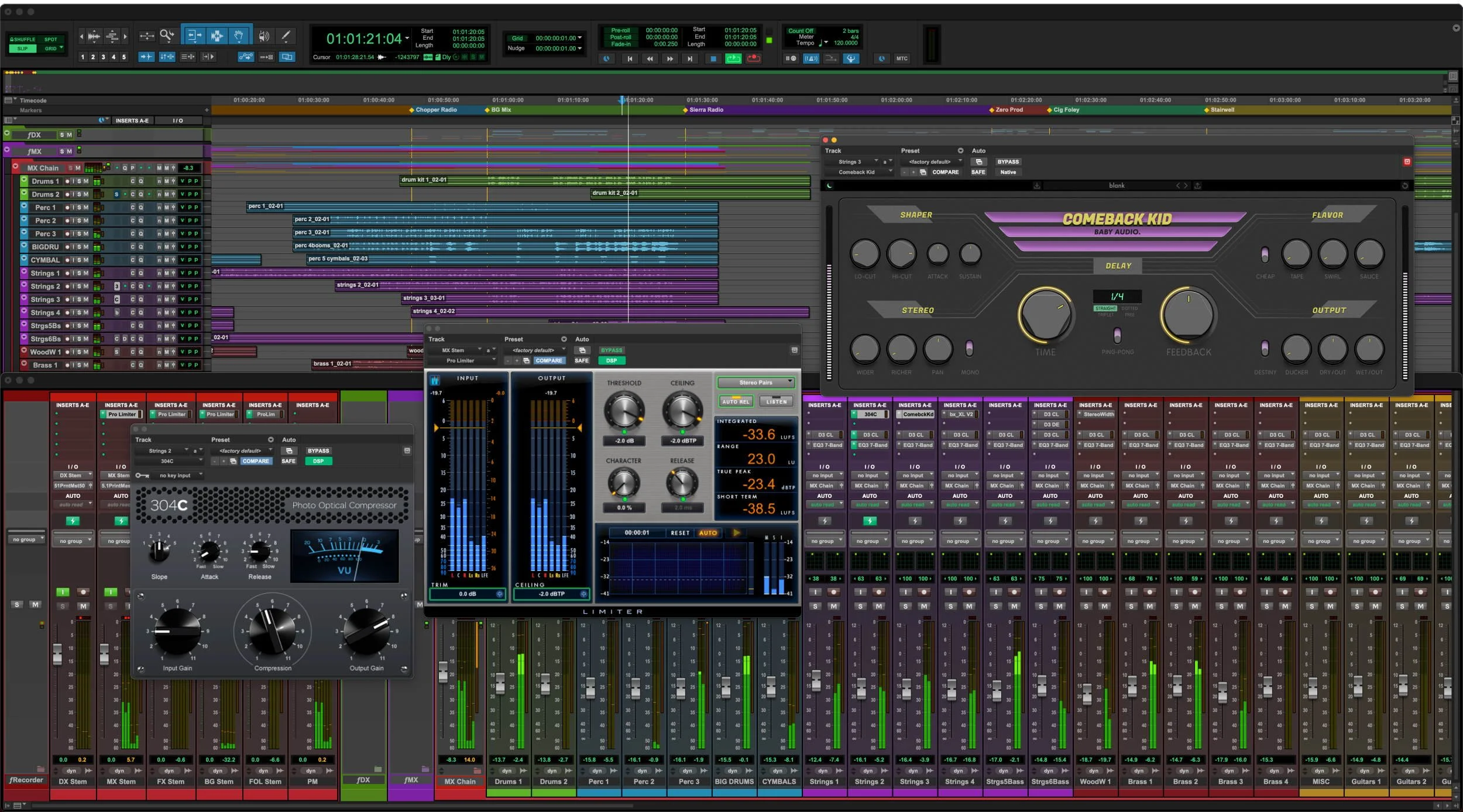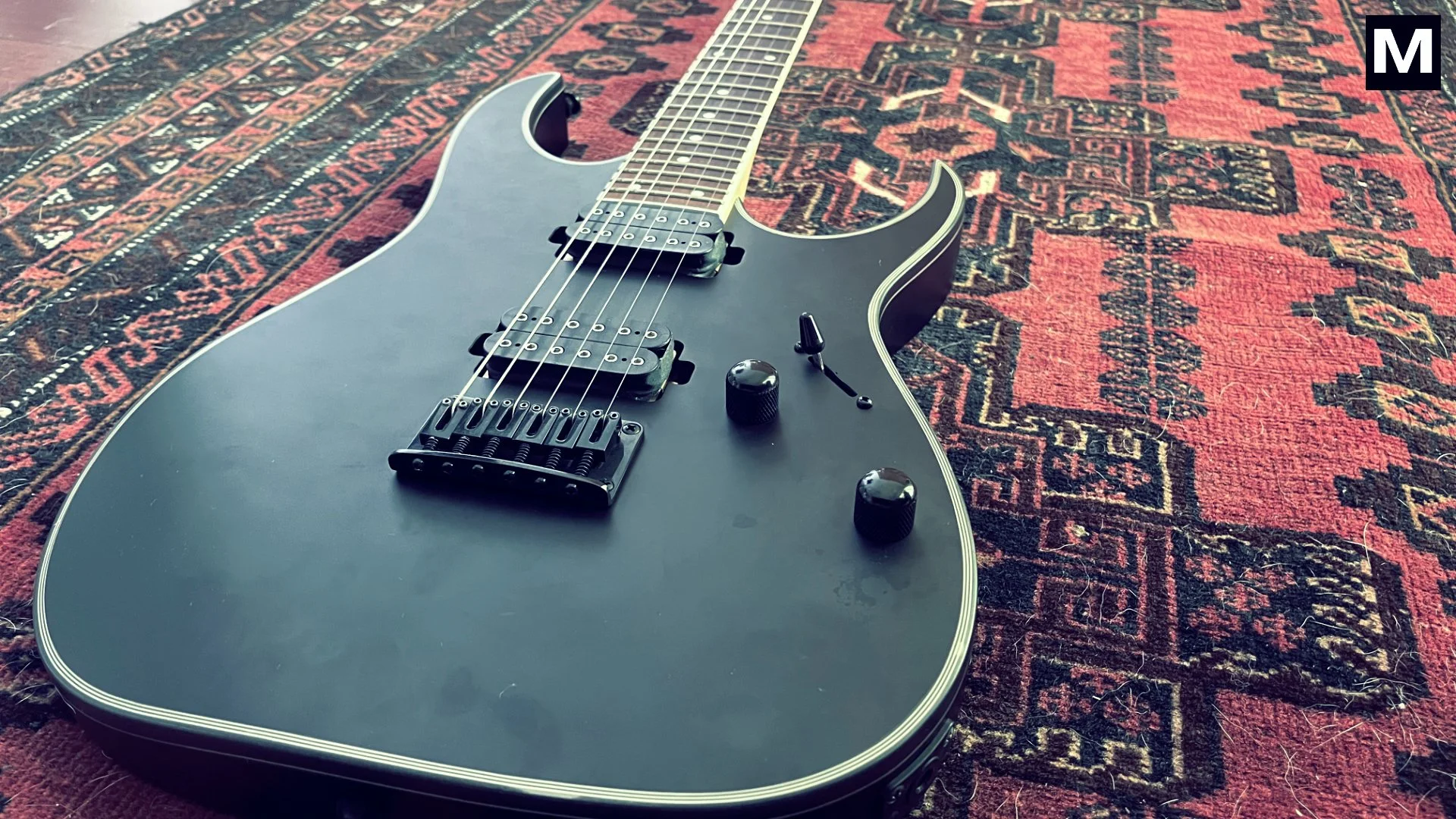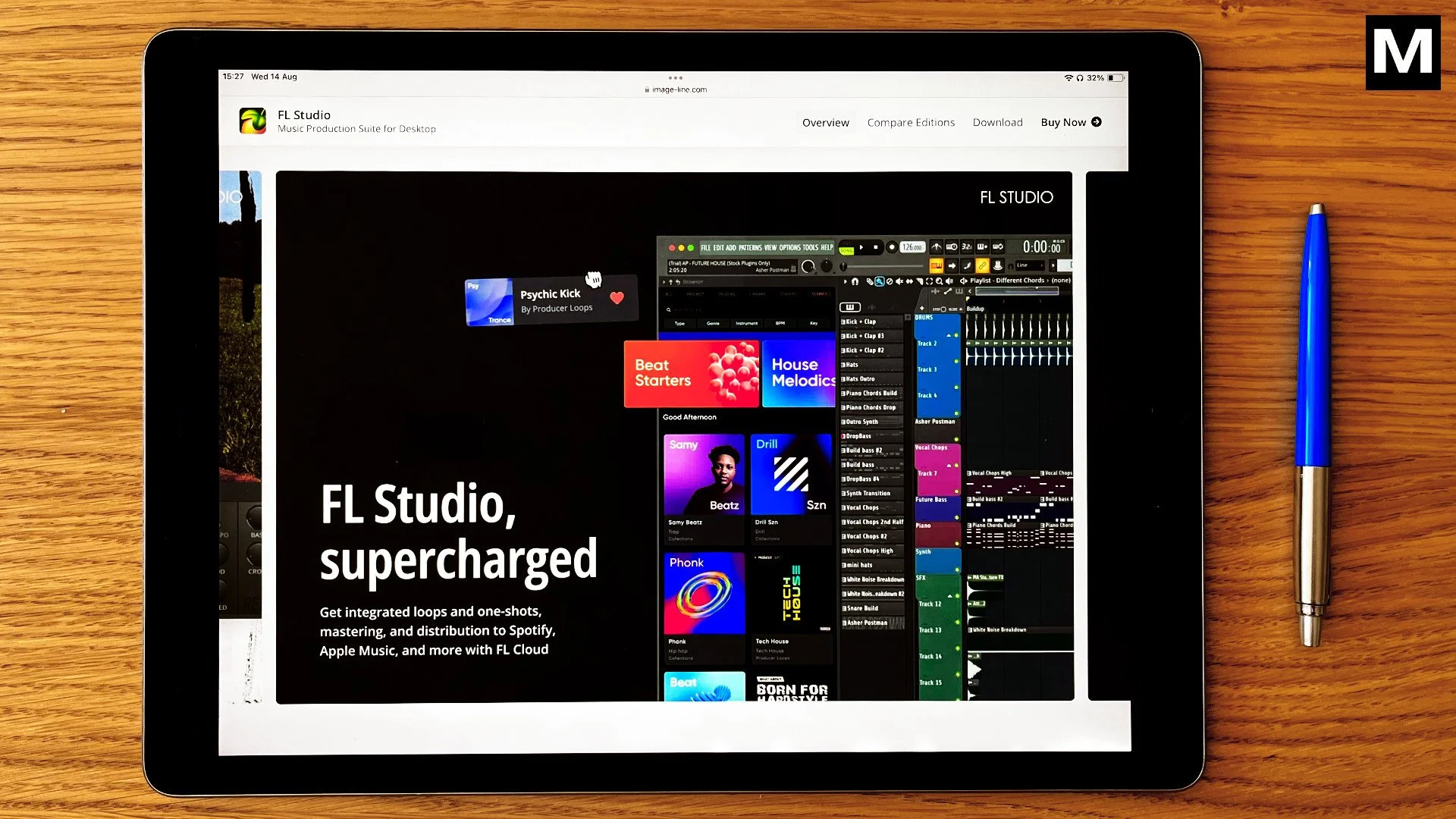Pro Tools vs Ableton Live 12: How to choose
Pro Tools vs Ableton Live 12 is a question I get a lot, specially from university students. It seems that in music education contexts both Ableton and Pro Tools have become the go-to DAW’s for teaching. I know it’s not true for every institution, but from my experience, they’re the two DAW’s you see most.
But even if you’re not a college student, this dichotomy seen in universities is important to note. The reason why these two DAW’s are so overwhelmingly used in education is because they represent, for some universities, the two most popular types of producer: the studio producer who records, mixes and masters for clients (Pro Tools) and the DJ/producer/beatmaker who creates instrumentals for the dance floor or for artists to sing on (Ableton Live). While these two “roles” are an oversimplification of the variety of music producers that exist, they explain well who these softwares are meant for - at least on paper. Let’s look more in-depth.
1. Ableton Live 12 Overview
Just for DJ’s? I don’t think so 💿
Screenshot of an Ableton Live 12 project
Ableton Live is well-established in the production community because of its use by DJ’s and EDM producers as the main live music performance DAW. The name “Live” isn’t a coincidence: Ableton was created with Live music in mind. There’s several features within Ableton that are unique to the DAW and allow DJ’s and producers to take their songs to the stage and perform them in front of an audience. Such features include Live’s clip launching, an industry leading feature that allows you to play clips in real time while being synced to a metronome and never miss a beat. This isn’t only great for DJ’s, but it also allows any musician to freely launch audio effects or other sounds while being synced to the main band backing track for example. The live music use case for Ableton is truly unbeatable, there’s no other tool like this. But the power of this production behemoth doesn’t end there.
Ableton is also quite good at “most things” in audio production. You can use it as a linear traditional DAW to record, arrange, edit, mix and master. It’s not “the best” at any of those specific tasks, but it does very well in all of them. But where Ableton really shines, is in its songwriting/production abilities. Creating music in Ableton is an absolute joy, especially if it’s more electronically inclined (but not only!). Ableton is setup in such a way where writing MIDI clips is very fast and efficient, recording audio is also very fast (but much worse than Pro Tools) and the native effects tools are great for creative applications. Ableton is a really good DAW to come up with ideas and destroy writer’s block. Personally, I find it a very inspiring tool to create music.
✅ What’s Ableton Live really good at?
Ableton is a phenomenal DAW for a lot of applications, but it’s especially great for creating music and playing live (with any type of setup, really). In the studio I find that Ableton allows me to create songs at a really fast pace. This is due to the fact that Ableton’s environment is very simple to move around in, plugins and other things are easy to grab and everything happens really fast.
❌ Where does Ableton Live drop the ball?
Ableton doesn’t particularly suck at anything, to be honest, but there’s things I don’t like to do in it. Mixing and mastering are definitely two things I don’t do in Ableton. You can do it there, but the tools available for the job, IMO are not at the same level as Pro Tools. Recording is also something I don’t like to do in Ableton - much prefer doing it in Pro Tools. But that’s about it.
2. Pro Tools Overview
The “industry-standard” 🥇
Screenshot of a Pro Tools project
Avid’s Pro Tools was the first DAW to become popular in recording studios around the world. It first released in 1989, a time when the music industry was in a very different place. Studios were still using tape, CD’s were all the rage and radio stations were very important for music distribution. The introduction of Pro Tools in the recording industry started a revolution that could never be turned back. While Pro Tools was the first, many other DAW’s appeared over the ensuing 30 years, and DAW’s ended up becoming the way in which all music is recorded.
Pro Tools’ first mover advantage gives it an edge in a few areas. Pro Tools is, IMO, the best when it comes to recording audio; the workflow for recording is extremely quick and efficient. Recording and comping takes is easy, painless and gets you results instantly. This is probably what Pro Tools does best and it does it better than anyone else. Editing audio is also very efficient and fast. Automations in Pro Tools are not the fastest available, but the workflow is very good and mistake-proof.
Pro Tools has been called the “industry-standard” for a number of years, and what that means essentially is that Pro Tools is the “main” platform that industry professionals use to produce. So the idea is that if you want to be able to collaborate easily and work in any studio, you should learn Pro Tools. Does this idea really make sense today? Check out my thoughts about it in more detail in this article.
✅ What’s Pro Tools really good at?
Recording, mixing, mastering and editing audio are Pro Tools biggest strengths. I would go so far as to say it’s unbeatable at these tasks. Unfortunately, for some of us those aren’t the only tasks we need a DAW for, otherwise Pro Tools would have no competition. Pro Tools is the ultimate DAW for a recording studio not only because it’s technically great for those requirements but also because it sort of became the studio world’s “universal language”, in a way.
❌ Where does Pro Tools drop the ball?
Creating music, scoring arranging, beat making, etc. Anything that involves actually making music is a nightmare in Pro Tools (for me). Pro Tools has all the tools you’d need to do any of these tasks, but because of the way the program is setup, and because of its sophisticated and advanced workflows, writing music sort of becomes more of a technical task that involves messing around with the mixer more than I enjoy. I would personally never write music in Pro Tools. There’s far better options to make music out there, Ableton being one of them. But keep in mind, it absolutely can be done - it’s just a matter of preference.
Also - I would advise against using Pro Tools for live music applications. While I’ve seen it done by professional bands, it’s very risky and I’ve also seen it go wrong (Pro Tools crashing live) because Pro Tools is very prone to crashing, even in spec’d out Macbook Pros. My advice would be either Ableton or Logic because not only of their functions but their stability.
3. Stock Plugins and Sounds
Can they be compared directly?
Comparing stock plugins between Ableton Live and Pro Tools is both very easy and very hard. It’s very easy because it’s quite obvious that Pro Tools has better mixing/mastering plugins and Ableton has better creative plugins. It’s hard because the softwares have different focuses and so deciding which one is better is super subjective to your needs.
Pro Tools’ plugins are more geared towards advanced mixing and mastering features. The stock compressor and EQ are very good and generally these tools do a better job at shaping audio and making it fit well into a mix than Ableton’s offerings. On the other hand, the stuff that comes with Pro Tools is a bit sterile and un-imaginative, in the sense that I don’t think these effects and instruments will inspire many people to create. Ableton’s plugins are far more interesting from a creative standpoint and have a lot more sounds that can trigger song ideas in your mind.
I think that’s pretty much the gist - Pro Tools has better mixing plugins, Ableton has better creativity focused plugins.
4. Who is it for?
Should I get Pro Tools or Ableton Live? 🧐
If you’re starting out, any DAW will be challenging to learn - BUT - any DAW will also be able to take you the distance. Here’s what I think are some really important things to consider before I tell you which DAW to get:
Stick with the DAW you pick long term! Avoid switching around in the beginning. Time with the program will compound over years and becoming an expert will take you a long way.
If you have a group of friends/colleagues who are also starting out, using the same DAW as them is a great idea! Social reinforcement is a great way to learn (by discussing with others) and staying motivated.
Don’t install ANY third party plugins in the first year, YOU DON’T NEED THEM YET despite what people might tell you! And honestly, it’s very likely you don’t have the necessary ear training to be able to tell the difference in sound quality yet. That takes a long to develop.
With that out of the way…
Who is PRO TOOLS for, mostly?
Producers looking to get deep into the music/recording industry
Producers who might be in countries where Pro Tools is required for everything in the recording space
Producers looking for the most advanced audio editing tools available in a DAW
Students who are in a course where Pro Tools is necessary
Producers looking to focus mainly on recording or mixing/mastering
Who is ABLETON LIVE for, mostly?
Producers looking to create beats and EDM
Producers who want to perform live with a DAW
Producers looking for a DAW that can act more like a musical instrument with clip launching and warp
Producers who prioritize creativity and idea generation against technical tools and serious recording
Producers who want Max for Live (never heard of Max? Google it, it’s awesome!)
Please take into account that these are my opinions only, derived from my experience working with hundreds of musicians and producers over the years. Your experience and opinions may differ, and that’s fine.
5. Price 🤑
Subscription vs Numbered versions
➡️ The Pro Tools pricing model is very complex but let’s try to break it down.
First off, there’s 3 tiers:
Pro Tools Artist: 32 audio and 64 MIDI tracks + 100+ instruments and effects + Inner Circle and Sonic Drops
Pro Tools Studio: 512 audio and 1 video track, 120+ instruments and effects, Immersive mixing support
Pro Tools Ultimate: 2,048 audio/64 video tracks, Full audio post workflows, Immersive mixing support
Then, each tier can be acquired in one of two ways: you can purchase a subscription (which can be monthly or annual) or you can buy a perpetual license. However, if you buy a perpetual license you’re stuck forever on the version number you bought. You can later pay for an update to get up to speed with the latest version. If you subscribe monthly/yearly, you get all the new stuff when it comes out.
To make it even more confusing, perpetual licenses can’t be bought through Avid’s website like any other DAW - apparently you have to buy them from a “reseller” - I have to be honest here, I don’t quite understand why this process would be so wildly inconvenient other than to dissuade new users from buying perpetual licenses, so I can’t help much with this process. I can’t see what the pricing of the perpetual licenses is (because it’s not on Avid’s website) but from a video I found on YouTube from the channel Malcom Owen-Flood, he mentions the perpetual licenses start to compensate financially after 4 years, so take that into account.
Here’s the subscription prices for the various tiers from Avid’s website.
Note: These are the “individual” prices, you can get student and teacher discounts:
Pro Tools Artist: 99$/99€ a year or 9.99$/9€ a month
Pro Tools Studio: 299$/289€ a year or 34.99$/34€ a month
Pro Tools Ultimate: 599$/589€ a year or 99$/99€ a month
➡️ Ableton Live 12 has 3 tiers you can choose from, which gives you a lot of control over how many features you want.
The tiers are as follows:
Live 12 Intro: 77$/79€ - Essentials – 16 tracks and 5+ GB of sounds
Live 12 Standard: 275$/279€ - Full features – 38+ GB of sounds and more instruments and effects
Live 12 Suite: 589$/599€ - Complete studio – 71+ GB of sounds, Max for Live and all instruments and effects
Ableton operates its sales in the more traditional way in which you’ll have to pay for an upgrade every time you want to jump to a new number version. Say you buy Ableton Live 12 Standard today. You’ll get all the “Live 12” updates for free, but once Ableton releases Live 13 you’ll have to pay an update price to get up to date with the new version (it will be a discounted price when compared to users who are buying for the first time). You can also upgrade your version of Live from Intro to Standard or Suite or from Standard to Suite at any point by paying the upgrade price (which is basically the difference in price from your version to the one you’re upgrading to).
In conclusion…
Choosing between Ableton Live 12 and Pro Tools is (generally) a fairly easy choice. Pro Tools has been around for over 30 years and it’s the industry’s main platform, being an exemplary recording and mixing software used in pro-studios around the world. If you want to know the business’ universal language, this is it. Pro Tools gives you the most advanced tools to record, edit and mix audio. On the other hand, Ableton is the “sweetheart” of the creative community. Used by producers, DJ’s and musicians all over the world, Ableton has become one of the (if not the) most popular DAW’s on account of its extensive features that allow users to do pretty much anything with speed and a huge focus on musical creativity.
Frequently Asked Questions (FAQ)
1 - Which DAW is better for beginners?
Generally I think Ableton is better for beginners, however Pro Tools is widely used in school/university contexts, so for some students Pro Tools might be a better investment in the sense that you’ll need to learn it anyway.
2 - Which DAW is better for electronic music and beat production?
Definitely Ableton. MIDI programming in Pro Tools, while totally possible, is very tedious. Stick with Ableton.
3 - How do their stock plugin libraries compare?
Personally I prefer Ableton’s stock offerings. Their instruments are better than what Pro Tools offers and the stock effects are more interesting. Pro Tools stock effects are very effective in mixing/mastering contexts, though.
4 - Which DAW has better MIDI and scoring tools?
Neither of them are great for this, but I’d say Ableton. If possible use Logic or Cubase for scoring.
5 - What about performance, stability, and system requirements?
Pro Tools is known to crash regularly. Ableton is fairly stable but very CPU hungry (at least on Mac). I’d say Ableton is far more stable but also a bit more CPU intensive than Pro Tools. Your mileage may vary.
6 - Which is more cost-effective long-term?
It depends on how you buy them. Ableton employs a relatively simple purchasing system, while Pro Tools is either a subscription you have to pay for life or a convoluted one-time purchase system that you have to update yearly anyway. I think Ableton wins here, if nothing else just because it’s simpler.
Glossary
DAW: Digital Audio Workstation; the programs we use to record, mix and master music such as Logic Pro, FL Studio, Ableton, Pro Tools and many more.
Clip Launching: A feature that exists in Ableton Live (and was adapted by Logic) that allows producers to freely launch sound clips (often looped rhythmic or melodic material) by clicking buttons on the UI or on a MIDI controller while staying tightly in sync with the global metronome.
Max for Live: Max is a visual programming environment created by Cycling ‘74 that was integrated into Ableton via the “Max for Live” platform. It allows users to create many things such as their own effects, utilities or even instruments that can then be used inside Ableton.
First mover advantage: The competitive benefit that Pro Tools has by being the first to enter the DAW market. Being the first many times makes you the “default” option, which is a very powerful idea in marketing.
Comping takes: Recording the same performance multiple times on the same track and then proceeding to “stitch together” (comp) the best parts to create the perfect take.







